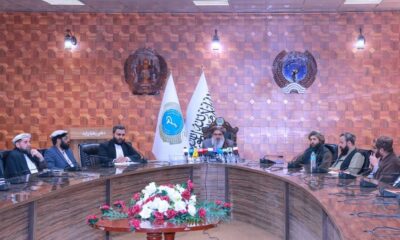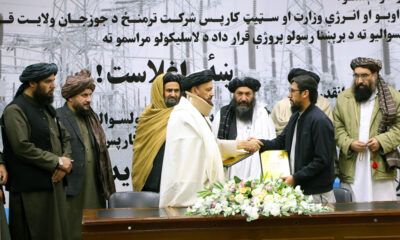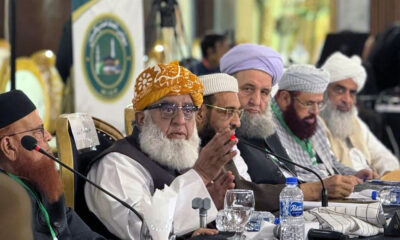World
Gaza braces for Israeli ground assault, fears of conflict spreading grow

Israeli troops prepared on Sunday for a ground assault on the Hamas-controlled Gaza Strip as the country hit back for an unprecedented assault on its territory, and Iran warned of “far-reaching consequences” if Israel’s bombardment was not stopped.
Israel has vowed to annihilate the militant group Hamas in retaliation for a rampage by its fighters in Israeli towns eight days ago in which its militants shot men, women and children and seized hostages in the worst attack on civilians in the country’s history, Reuters reported.
Some 1,300 people were killed in the unexpected onslaught, which shook the country with horrifying mobile phone video footage and reports from medical and emergency services of atrocities in the overrun towns and kibbutzes.
Israel responded by subjecting Gaza to the most intense bombardment it has ever seen, putting the small enclave, home to 2.3 million Palestinians, under total siege and destroying much of its infrastructure.
The expected ground assault had not begun by the early hours of Sunday.
U.S. Secretary of State Antony Blinken began a meeting with Saudi Crown Prince Mohammed bin Salman in Riyadh soon after 7:30 a.m., a U.S. official said, as he works with regional allies to prevent the war from spiraling into a bigger conflict, and help win release of the hostages.
Gaza authorities said more than 2,300 people had been killed, a quarter of them children, and nearly 10,000 wounded. Rescue workers searched desperately for survivors of nighttime air raids. One million people had reportedly left their homes.
Israeli Prime Minister Benjamin Netanyahu’s government also told the militant group Hezbollah, which neighbors Israel to the north, not to start a war on a second front, threatening the “destruction of Lebanon” if it did.
On Sunday, a senior Israeli official accused Iran of trying to open such a second front by deploying weapons in or through Syria, in a response to a post on social media platform X that suggested such a scenario.
“They (Iranians) are,” wrote Joshua Zarka, head of strategic affairs for Israel’s foreign ministry.
Iran’s mission to the United Nations warned late on Saturday that if Israel’s “war crimes and genocide” were not halted immediately, “the situation could spiral out of control” and have far-reaching consequences.
Hamas and Hezbollah are backed by Iran.
Hamas leader Ismail Haniyeh, meeting Iran’s foreign minister on Saturday in Qatar, discussed the Palestinian group’s attack in Israel “and agreed to continue cooperation” to achieve the group’s goals, Hamas said in a statement.
The Israeli military said that in an air strike in Khan Younis it killed a commander of Hamas’ elite Nukhba Force who led the Oct. 7 attack on the two Israeli border villages of Nirim and Nir Oz.
U.S. President Joe Biden and other world leaders warned against any country broadening the conflict. International organizations and aid groups urged calm and pressed Israel to allow humanitarian assistance to get through.
In New York, Russia asked the U.N. Security Council to vote on Monday on a draft resolution on the Israel-Hamas conflict that calls for a humanitarian ceasefire and condemns violence against civilians and all acts of terrorism.
Warnings against wider conflict
Biden called Netanyahu on Saturday and, while reiterating “unwavering” support for Israel, discussed international co-ordination to ensure innocent civilians have access to water, food and medical care.
Biden also spoke with Palestinian President Mahmoud Abbas, who stressed the urgent need to allow humanitarian aid corridors in Gaza.
The U.S. Department of Defense said the Eisenhower aircraft carrier strike group would start moving towards the eastern Mediterranean to join another carrier strike group already there.
Defense Secretary Lloyd Austin said it was “part of our effort to deter hostile actions against Israel or any efforts toward widening this war following Hamas’s attack on Israel.”
On Friday, the Israeli military told residents of the northern half of the Gaza Strip, which includes the enclave’s biggest settlement, Gaza City, to move south immediately.
On Saturday, it said it would guarantee the safety of Palestinians fleeing on two main roads until 4 p.m. Troops were massing as the deadline passed.
Hamas told people not to leave, saying roads out were unsafe. It said dozens of people had been killed in strikes on cars and trucks carrying refugees on Friday. Reuters could not independently verify this claim.
Some residents said they would not leave, remembering the “Nakba,” or “catastrophe,” when many Palestinians were forced from their homes during the 1948 war that accompanied Israel’s creation.
“They are striking us but we are not going to leave our homes and we will not be displaced,” said Shaheen, sitting at home with her grandchildren facing relentless Israeli bombardment and shortages of bread, drinking water and power.
Israel says Hamas is preventing people from leaving in order to use them as human shields, which Hamas denies.
The Palestinian Health Ministry said early on Sunday that 300 people, mostly children and women, had been killed, and 800 more had been injured in Gaza during the last 24 hours.
The only route out of Gaza not under Israeli control was a checkpoint with Egypt at Rafah.
Egypt officially says its side is open, but traffic has been halted for days because of Israeli strikes. Egyptian security sources said the Egyptian side was being reinforced and Cairo had no intention of accepting a mass influx of refugees.
A U.S. State Department official said the United States was working to open the crossing to let some people out, and had been in touch with Palestinian-Americans who want to leave Gaza.
Washington later said it had told its citizens to try to reach the crossing.
Israel says its evacuation order is a humanitarian gesture while it roots out Hamas fighters. The U.N. says so many people cannot be safely moved within Gaza without causing a humanitarian disaster.
The violence in Gaza has been accompanied by the deadliest clashes at Israel’s northern border with Lebanon since 2006, raising fears of war spreading to another front.
Hezbollah said it fired at five Israeli outposts in the disputed Shebaa Farms area with guided missiles and mortar bombs. Reuters saw missiles fired at an Israeli army post and heard shelling from Israel and gunfire.
Israel’s Kan radio reported five border villages were under lockdown in response to a suspected incursion from Lebanon.
Netanyahu security adviser Tzachi Hanegbi said Israel was “trying not to be drawn into a two-front war” and warned Hezbollah to stay out of the fighting.
World
Trump administration recalls dozens of diplomats in ‘America First’ push
The State Department declined to name those affected, with a senior official calling the recalls a routine step for new administrations.
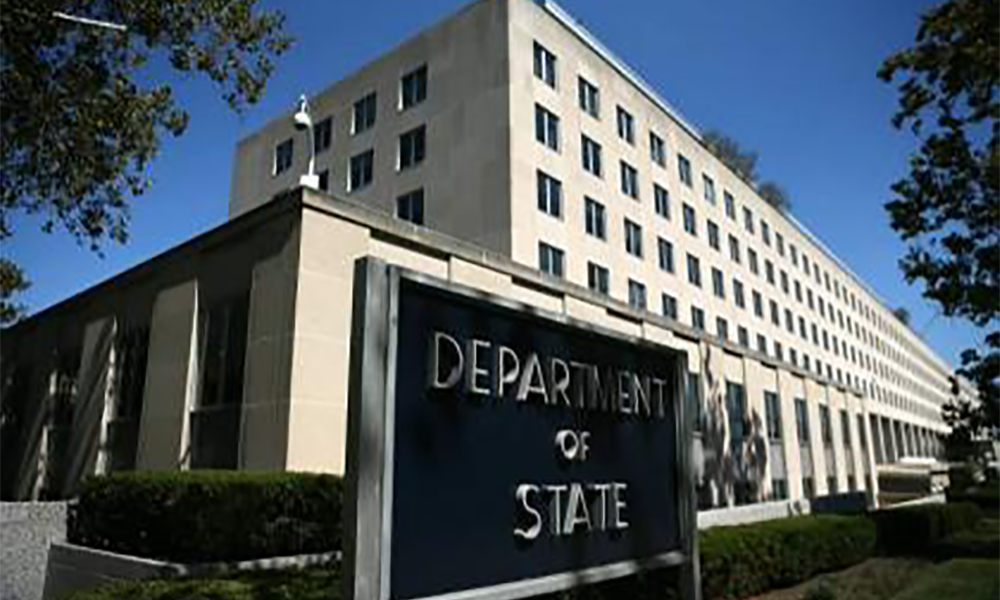
The Trump administration is recalling nearly 30 U.S. ambassadors and senior career diplomats to ensure embassies align with President Donald Trump’s “America First” agenda, a move critics say could weaken U.S. credibility abroad.
The State Department declined to name those affected, with a senior official calling the recalls a routine step for new administrations. The official said ambassadors are the president’s representatives and must advance his policy priorities.
However, officials familiar with the matter said the recalls largely affect career Foreign Service officers posted to smaller countries, where ambassadors are traditionally non-partisan. Those ordered back to Washington were encouraged to seek other roles within the State Department.
The American Foreign Service Association said some diplomats were notified by phone without explanation, calling the process “highly irregular” and warning that such actions risk harming morale and U.S. effectiveness overseas. The State Department did not respond to the criticism.
The move, first reported by Politico, comes as Trump seeks to place loyalists in senior roles during his second term, after facing resistance from the foreign policy establishment in his first.
Democrats have criticised the decision, noting that around 80 ambassadorial posts remain vacant. Senator Jeanne Shaheen said the recalls undermine U.S. leadership and benefit rivals such as China and Russia.
World
Trump plans expanded immigration crackdown in 2026 despite backlash
The plans come amid rising public unease over aggressive tactics, including neighborhood raids and the detention of some U.S. citizens.

U.S. President Donald Trump is preparing to significantly expand his immigration crackdown in 2026, backed by billions of dollars in new funding, even as political opposition grows ahead of next year’s midterm elections.
ICE and U.S. Customs and Border Protection are set to receive an additional $170 billion through September 2029, enabling the administration to hire thousands of new agents, expand detention facilities and increase enforcement actions, including more workplace raids. While immigration agents have already been surged into major U.S. cities, many economically critical workplaces were largely spared in 2025.
The plans come amid rising public unease over aggressive tactics, including neighborhood raids and the detention of some U.S. citizens. Trump’s approval rating on immigration has fallen from 50% in March to 41% in mid-December, according to recent polling.
The administration has also revoked temporary legal status for hundreds of thousands of Haitian, Venezuelan and Afghan migrants, expanding the pool of people eligible for deportation.
About 622,000 immigrants have been deported since Trump took office in January, short of his goal of 1 million deportations per year.
White House border czar Tom Homan said arrests will increase sharply next year as staffing and detention capacity grow. Critics warn that expanded workplace enforcement could raise labor costs and deepen political and economic backlash ahead of the elections.
World
US, Russian officials meet in Florida for more Ukraine talks
Kyiv says it will not cede land that Moscow’s forces have failed to capture in nearly four years of war.
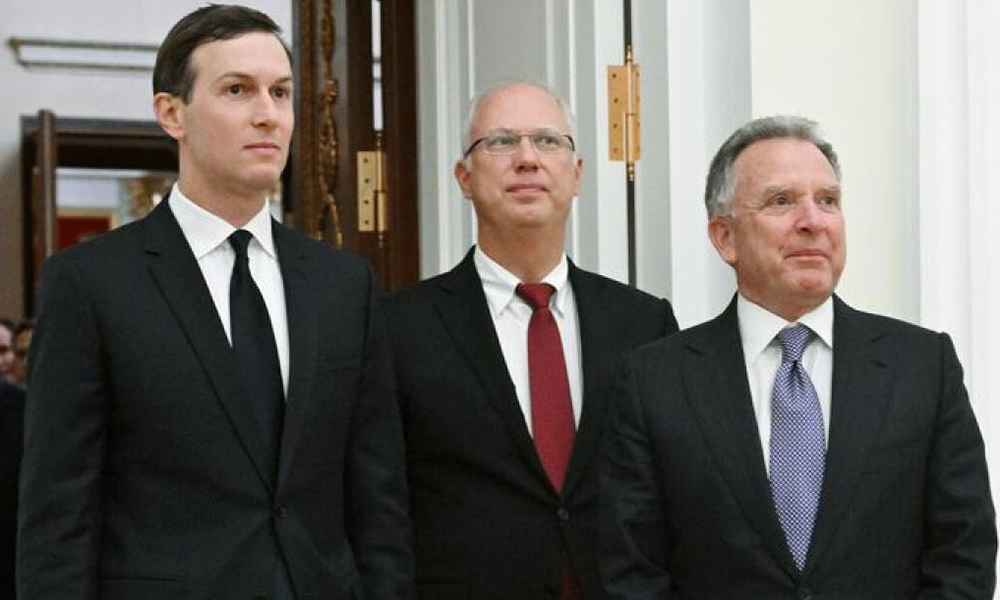
U.S. negotiators met Russian officials in Florida on Saturday for the latest talks aimed at ending Russia’s war in Ukraine, as President Donald Trump’s administration tries to coax an agreement out of both sides to end the conflict, Reuters reported.
The Miami meeting followed U.S. talks on Friday with Ukrainian and European officials, the latest discussions of a peace plan that has sparked some hope of a resolution to the conflict that began when Russia launched its full-scale invasion in February 2022.
Russian President Vladimir Putin’s special envoy Kirill Dmitriev told reporters after meeting U.S. special envoy Steve Witkoff and Trump’s son-in-law Jared Kushner that the talks were constructive and would continue on Sunday. A White House official said the talks had concluded for the day.
“The discussions are proceeding constructively. They began earlier and will continue today, and will also continue tomorrow,” Dmitriev said.
Marco Rubio, Trump’s top diplomat and national security advisor, had said he might also join the talks.
U.S., Ukrainian and European officials earlier this week reported progress on security guarantees for Kyiv as part of the talks to end the war, but it remains unclear if those terms will be acceptable to Moscow.
A Russian source told Reuters that any meeting between Dmitriev and the Ukrainian negotiators had been ruled out.
In Kyiv, Ukrainian President Volodymyr Zelenskiy said on Saturday that Ukraine would back a U.S. proposal for three-sided talks with the United States and Russia if it facilitated more exchanges of prisoners and paved the way for meetings of national leaders.
“America is now proposing a trilateral meeting with national security advisers — America Ukraine, Russia,” Zelenskiy told local journalists in Kyiv.
U.S. intelligence reports continue to warn that Putin intends to capture all of Ukraine, sources familiar with the intelligence said, contradicting some U.S. officials’ assertions that Moscow is ready for peace.
Putin offered no compromise during his annual press conference in Moscow, insisting that Russia’s terms for ending the war had not changed since June 2024, when he demanded Ukraine abandon its ambition to join NATO and withdraw entirely from four Ukrainian regions Russia claims as its own territory, Reuters reported.
Kyiv says it will not cede land that Moscow’s forces have failed to capture in nearly four years of war.
Ukraine’s top negotiator Rustem Umerov said U.S. and European teams on Friday held talks and agreed to pursue their joint efforts.
“We agreed with our American partners on further steps and on continuing our joint work in the near future,” Umerov wrote on Telegram of the discussions in the United States, adding that he had informed Zelenskiy of the outcome of the talks.
The White House did not immediately respond to a request for comment.
Rubio told reporters on Friday that progress has been made in discussions to end the war but there is still a way to go.
“The role we’re trying to play is a role of figuring out whether there’s any overlap here that they can agree to, and that’s what we’ve invested a lot of time and energy and continue to do so. That may not be possible. I hope it is. I hope it can get done this month before the end of the year.”
-

 Latest News2 days ago
Latest News2 days agoAfghanistan signs 30-year deal for marble mining in Daikundi
-

 Latest News4 days ago
Latest News4 days agoAfghan border forces prevent illegal entry of hundreds into Iran
-

 Latest News3 days ago
Latest News3 days agoPakistan summons Afghan diplomat over deadly attack in North Waziristan
-

 Latest News3 days ago
Latest News3 days agoAfghan health minister calls for medical cooperation between Kabul and New Delhi
-

 Latest News4 days ago
Latest News4 days agoJapan allocates nearly $20 million in humanitarian aid for Afghanistan
-

 Latest News3 days ago
Latest News3 days agoKarzai urges reopening of girls’ schools and universities for Afghanistan’s bright future
-
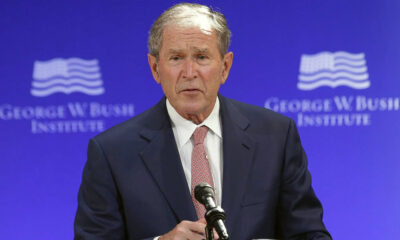
 Latest News2 days ago
Latest News2 days agoBush Institute criticizes Trump administration’s Afghan immigration freeze
-

 Health4 days ago
Health4 days agoIndia issues over 200 medical visas to Afghans in last four months




